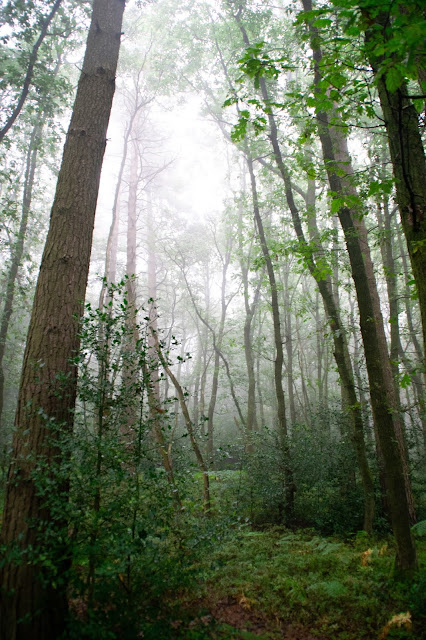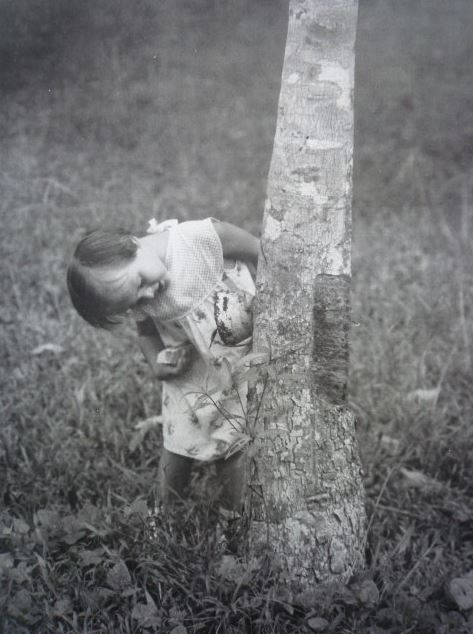The Wood and The Boy
 |
| Photo by Harry Shelton on Unsplash |
As woodlands
go, my time on this planet was short lived. My origins sprang from gravel extraction
during the First World War. Not grand by modern 21st century
standards, mere scrapings by comparison, with no deep pits, just shallow hollows
that left hillocks of sandy spoil and low spots that filled with water during
winter rains. This was enough to sustain the growth of willow in the wetter
areas and the botanists would come to describe me as a wet woodland with a
patchwork mosaic of grassland, reed and bramble habitats in the drier
peripheries of my domain.
A couple of
deeper small ponds were dug and left with their gravelled tumuli standing
sentry duty by their sides. The gravel seam was limited and soon the workings
were abandoned for richer seams further north and, in time, these new quarries
became deep pits of crystal clear water, the banks of which limited my
expansion as a woodland, leaving me to dip my roots in their margins.
As the
process of succession set in, the exposed gravel was colonised by grasses that
sent out aerial roots to bind the sandy soil and, year on year, the die back
vegetation nourished and enriched the soil allowing more sensitive mid
successional plants to move in, until, as they did at Sleeping Beauty’s
enchanted castle, the prickly brambles closed in as an impenetrable thicket to
hide the abandoned machinery and rail tracks along which the loaded hoppers
used to run.
The years
moved on and left undisturbed, my willows grew tall and strong, casting dark
shadows. But here and there the sunlight still penetrated, and I watched the
mosquitoes that spawned in my pools dance in their aerial ballet, spot
lit in nature’s limelight.
Less than a
kilometre to the north-east lay Waterbeach airfield, and sometimes during World
War Two, my branches were clipped by stricken planes limping back to base with
barely sufficient power to clear my canopy, like some weary beast of burden on
its last legs after years of drudgery. Sadly not all of the planes made it back
and roiling columns of smoke and the searing heat of burning aviation fuel
signified another funeral pyre of the brave crews and their craft as they
crashed and burned barely yards from home and safety.
By and large
the nearby residents whose gardens backed on to my southern edges left me alone
and I had only the company of the fauna that dwelled within my depths until one
day my life changed when a young boy of 7 years moved into one of the adjacent
houses.
It was at
the end of July 1959 just as the schools broke up for the summer break. I don’t
know where he came from, but I could see that he was alone as no one ever came
to see him. There were no other children living in the street, the village was
a kilometre to the west and most of the children didn’t venture far. As it was
school holidays the opportunity for him to make new friends was limited.
Day after
day the boy visited me, and the years unfurled. He was a constant companion and
I used to watch for him as he made his way along the path between the brambles
that he had cut with a bill hook. We never spoke but I felt that we
communicated on another plane beyond corporeal senses. The wind in my branches
conveyed my moods from the whisper of a gentle breeze to the roaring howl of
the gale and the boy listened to them all. I knew he felt my pain when my
shallow roots were torn from the thin soil to leave gaping wounds that quickly
filled with ground water and root plates were suspended at unnatural angles
like giant tumbled toadstools, exposing my secret under world.
From my
ravaged wounds the boy gathered the exposed fossils that had lain undisturbed
in the graveyards of seas long since vanished as climates changed and tectonic
plates moved to consume the playgrounds of prehistoric denizens of the deep. I
could see the boy treated these secret treasures with reverence and wonder and
I did not feel violated as he gently probed, sifting the sandy soil with the
precision and care of a surgeon.
At first I
watched the boy’s attempts at fire lighting with fear and trepidation, afraid
that the hungry flames that consumed the delicate twigs and then the smaller
branches and ultimately the logs, would
spread out of control, sweeping through my trees leaving me charred and
exposed. But my fears were unfounded. The boy always ensured that the fire pit
was safely contained and when he left me the glowing embers were always
extinguished by him stamping or peeing on the stubborn ones which elicited
hissing clouds of ammonia scented stream.
On occasions
he would sit in one of my grassy clearings, cooking bacon and eggs and sipping
tea boiled from an old battered kettle whilst his shadow leaped and danced on
the canvas of my illuminated branches. At these times he would watch the sun
set and gaze upon the stars and it was then that I would lose him for a while
as his thoughts seemed to project way
beyond the limits of my trees, lost in some deeper reverie. But eventually he
would return with a shake of his tousled curls and a glance about him as if
checking I was still safe. On winter nights he would stare in pleased surprise
at the circle of hoar frost that had descended in a ring around the campfire
providing a dark sphere of protective warmth around him.
Over the
twelve years that I knew him the boy grew to manhood, but he was never far from
me and we had many experiences together. I watched as he built dens from my
branches torn from me in high winds and sometimes cut from the green, but he
would always do this with respect taking no more than I was willing to give. He
even took whole standing trees chopping them by hand with an axe but leaving a
pollarded stump to regrow and prolong their life. Nothing was destroyed in
wanton waste. All of the tree was chopped and sawn for logs to heat the boy’s
house in winter as there was no central heating in those days. Smaller branches
were used for bean poles and kindling.
The boy’s
affinity for nature was self-evident from the outset. He soon discovered the foxes
earth where the cubs played in the open grassy clearing on balmy May evenings. On
spring mornings, he watched in pleasure as the aerodynamically challenged
bumble bees warmed by the vernal sunshine bounced from blossom to blossom on
the fluffy pussy willow catkins. Some of the sprigs he harvested were for
Easter decorations in his local church though he rarely attended. He also
collected and sold hanging basket linings from some of the moss that grew in abundance in my
wetter places. Gathered with gentle consummate care he always left enough for
regrowth because long before sustainability became oft quoted but seldom
honoured word he intuitively understood how to work with and for nature.
He knew
where every bird’s nest was located from the flimsy twigs that barely supported
the pigeons’ nests (and sadly sometimes didn’t)
to the secretive robin’s and jenny wren’s and on the lake margins the
moorhens, coots and great crested grebes, the latter, like the pigeons seemingly
living more in hope than intent that their flimsy rafts would survive the
brooding period intact.
The course
of life rarely runs smooth and from time to time I would sense the boy’s
sadness such as his shock at finding the cubs strung up at my margin. Their
beautiful russet fur covered bodies hanging down headfirst as a trophy for the
hunters who resented their mother’s forays to their chicken runs. I also
witnessed the homage the boy paid to his pet rabbit which was buried close to
where the foxes had been strung. The black and white Dutch rabbit “Patch” was
obviously devoted to the boy as he would follow him everywhere and come to him
when he whistled. He would roam wild and free and often consorted with the wild
rabbits that frequented my depths. Sadly, this was his downfall as he
contracted myxomatosis and had to be humanely dispatched by the boy’s father.
This tragedy
obviously affected the boy deeply and he buried his pet with great care and
reverence and each night at dusk would come to the graveside and stand in sad
contemplation. I know not what thoughts came to him, but the sense of pain and
loss was palpable even to me.
Nothing
lasts, and even the stars cannot shine forever.
My time on this earth was much less than the ancient primeval forests of
yesteryear. At 19 the boy left my haven
for the wider world, and soon after, his father’s lease on my plot was
terminated and I was sold to a farmer who had other ideas than retaining a mosquito
ridden wet woodland that yielded little but a stable source of firewood and a wild
playground for a boy that no longer came.
My trees
were cut down and burnt and the humps and hollows were bulldozed and in-filled
with imported soil, seeded with monoculture rye grass to fatten beef and I was
no more of this physical world. Perhaps my seed still lives on in self sets
around the gravel pits now turned to fishing lakes. But my spirit lives on,
imbued within the heart of the boy who grew to a man within the shelter of my trees, who lay within my secret grassy
clearings watching the clouds, who sweated whilst cutting my trees given
freely, who learnt the ways of nature and the need to care for the delicate lifeforce
that lies within each and every living thing. I know he still feels pain sprung
from the knowledge that our living planet is existing on borrowed time if we
don’t wake up and heed the call of the wild.



Comments
Post a Comment